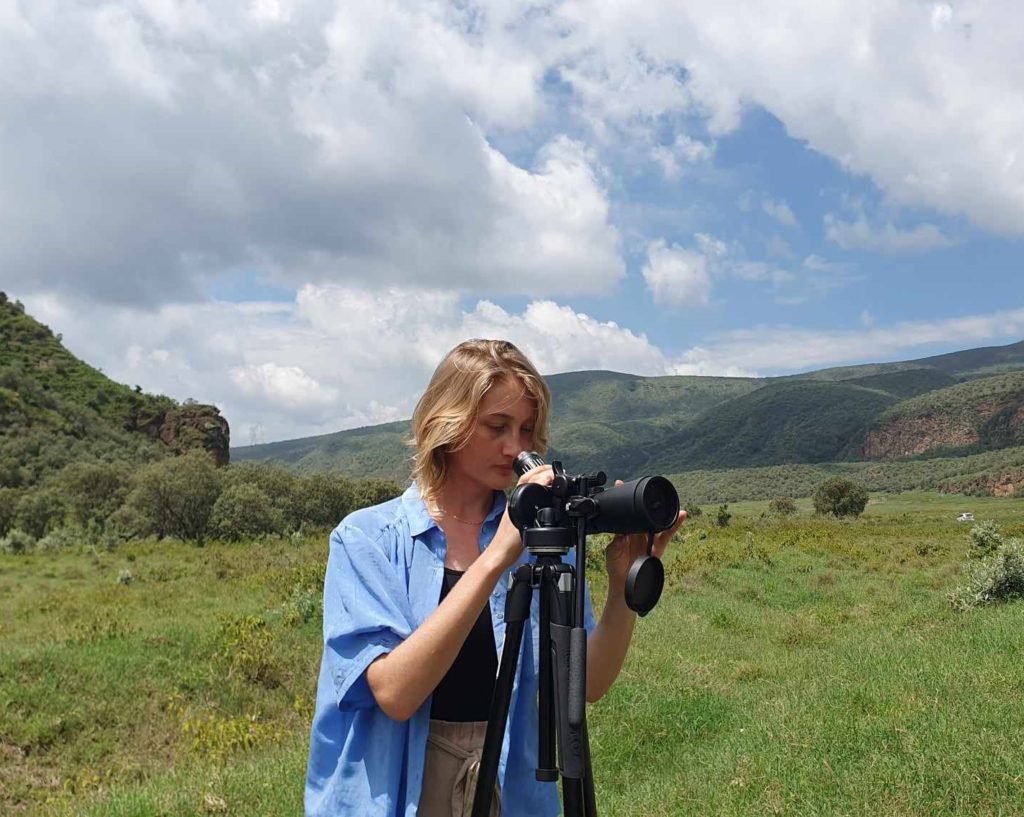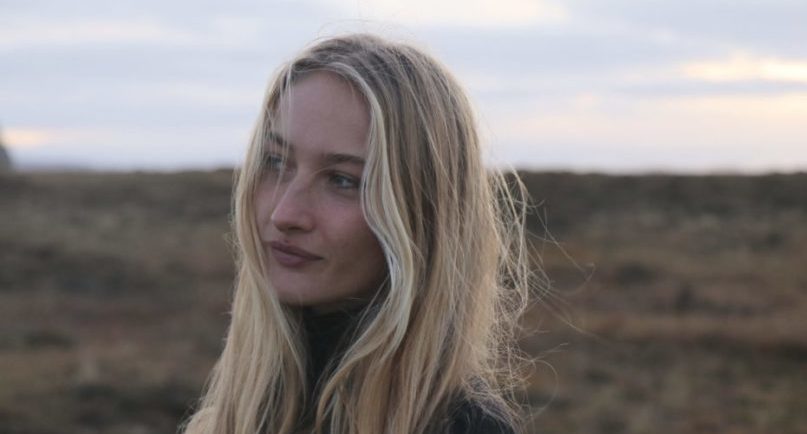Our world-leading environment and sustainability research underpins a wide range of postgraduate programmes. In our Meet our Students series we look at the journeys taken by those studying MSc courses within the Graduate School of Environment and Sustainability, explore why they have chosen to study with us and learn about their experiences at the University of Exeter, Cornwall. Today we hear from Julia, an MSc Evolutionary and Behavioural Ecology student.
Where do you call home? That’s a difficult question for me to answer as I grew up in different countries and generally feel unmoored from any specific culture or nationality. The most accurate answer would be that Europe is my home.
Where did you complete your undergraduate course? University of Stirling, Scotland.
What was your undergraduate course? BSc Honours in Animal Biology
Did you work or volunteer before starting your MSc programme?
Yes, I was the Engagement Officer at the John Muir Trust (a UK based environmental NGO protecting wild places) where I helped transition the management of John Muir Way, a long-distance route through the heart of Scotland, and managed partnerships with Loch Lomond National Park and outdoor centres in Scotland and Northern Ireland. In the past, I have volunteered at Merazonia (Ecuador), a rehabilitation centre for trafficked wildlife nestled in the Amazon rainforest, and at Archelon (Greece), where I helped monitor sea turtle activity. At the University of Stirling, I founded the Hedgehog Team in collaboration with Hedgehog Friendly Campus (funded by the Hedgehog Preservation Society). The Hedgehog Team comprised around 30 volunteers, both students and University staff. Its main aim was to improve hedgehog monitoring and conservation on campus, increase wildlife friendly landscaping practices and improve habitat connectivity. The last I heard was that it had been incorporated as part of the field work module within the undergraduate biology curriculum. As president of the Environmental Enterprise Society at Stirling, I helped maintain a space for nature enthusiasts during the pandemic, organised events in collaboration with other societies and raised money for environmental charities. My most recent volunteering role was as Secretary of the Bute Conservation Trust, which conserves the natural beauty of the isle of Bute, Scotland.
What attracted you to your MSc course? Why did you choose the University of Exeter?
The masters in Evolutionary and Behavioural Ecology is a very unique course, rarely found anywhere else in the world. I have always loved animal behaviour and knew I would pursue it as a career from a young age. My interest in evolution, however, developed during my undergraduate degree. A very intricate and complex topic, evolution often times leaves me confounded and frustrated, and yet it is that very complexity which fuels my curiosity. A solid understanding of evolutionary mechanisms is, in my opinion, a pre-requisite for the comprehensive interpretation of animal behaviour, regardless of whether the behaviour under study is evolving or not.
What do you like about living and studying in Cornwall?
I chose the University of Exeter and the Penryn campus for its outstanding natural beauty. City-shy and a lover of small villages, medieval castles, forest walks and coffee and bagels at the beach; Cornwall was a no-brainer for me. I have loved learning about Cornwall’s history and culture, spotting its extraordinary marine life but above all experiencing the friendliness of locals as well as University students and staff.
What are you looking forward to most about your course?
I am looking forward to writing my thesis and seeing the fruits of my labour materialise this summer. Diving headfirst into a project, delving into its microcosm of knowledge previously unknown to you and consequently boring your friends and family with it for the better part of a year is one thing, but to actually see your field work, analysis and thoughts formatted into a tangible story of discovery and scientific insight yields a powerful sensation of satisfaction.
What skills and experiences are you hoping to gain from your course?
My main reason for pursuing a masters was to gain in depth knowledge about the methods used to research and quantify animal behaviour as well as improve my analytical and academic writing abilities. So far, I have designed and applied behavioural observation techniques on buffalo and oxpeckers in the field, written reports, grant applications, literature reviews and posters where I have had to apply statistical analyses or interpret models. The masters has delivered exactly what I was looking for and successfully solidified and expanded the foundation I had built during my undergraduate course.
What have been the highlights so far?
I am currently in Costa Rica researching the ecosystem services effects of vulture decline for my thesis. It is easily the highlight of the course for me so far, although the Kenya field course was a strong contender. What I have enjoyed most of all has been the dedicated space for discussions among students and staff in each module, which allowed for a much more practical and in-depth understanding of the topic at hand. I also loved the Art of Science module as a tool to improve science communication, I will definitely revisit those notes again and again during my career!
What are your career aspirations?
My future plans include a PhD in animal behaviour. I hold a deep and long-standing fascination for felines and predators, so I am quite determined to break into this specific field. However, I also have come to enjoy learning about cognition and social dynamics in more cooperative species. If there’s one thing I will be taking forward from this course, it is the hallmark of a true biologist: a perpetual curiosity and interest in understanding all creatures great and small. But those creatures are in desperate need of our aid, so I would like to apply my academic findings in the field for conservation purposes. I need my research to not only create new knowledge but also have practical applications which help combat the biodiversity crisis.

The Graduate School of Environment and Sustainability brings together experts from across the spectrum of earth and life sciences, engineering, humanities, social sciences and business. Our programmes are all designed with a focus on developing solutions to global challenges and creating a better future for our planet and its people. Help lead a global Greener, Healthier and Fairer revolution by studying one of our world-leading, interdisciplinary Masters degrees here at the University of Exeter, Cornwall. See our Masters programmes here.

